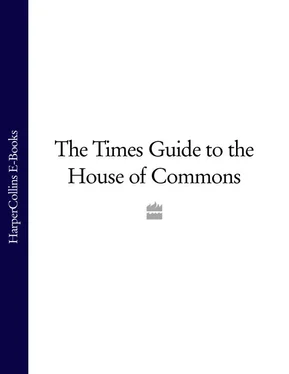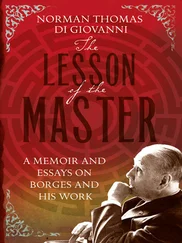For those who know him well, the other tragedy of the outgoing Prime Minister is that the clunky, ill-at-ease, irascible man the public perceives is not the same person that Mr Brown, at his best, can be. That Mr Brown is a man utterly devoted to his family and friends, warm in his dealings with the public when the cameras are out of sight, funny when relaxing, as wellread as anyone could be, a sporting facts-and-figures nerd. His wife, Sarah, and sons, John and Fraser, quite obviously mean so much to Mr Brown, who married in his forties, and he has often told friends that the one consolation of being out of office would be being able to spend more time with them. Sadly, as even his closest friends admit, the public perception is not an accident and is justified by Mr Brown’s behaviour over the years. His image as a bully is not accurate but he did get angry with himself, and with others, when things went wrong or they failed to meet his expectations.
It was, however, another personality trait that condemned Mr Brown to a political career that was to end without him winning a general election. During his long spell at the Treasury, and more crucially during those early weeks after he succeeded Mr Blair in 2007, Mr Brown acquired a reputation for dithering over big decisions. The habit was to cost him dear. As he almost announced on becoming leader, it had always been his intention on taking over to go to the country in 2008, but in the honeymoon period after he became Prime Minister, his popularity and that of Labour soared. The public liked the way he handled a run of national emergencies, including the floods and an outbreak of foot-and-mouth disease. So much so that Cabinet ministers were, by August, taking an autumn election for granted. Mr Brown, as a non-elected Prime Minister, could have rightfully asked for his mandate that September, ensuring that the party conferences were cancelled.
His inherent caution held sway. He needed more evidence that he was on a winner. He held the election threat over the Tory conference, believing that it would destabilise them. It was a disastrous miscalculation. He made the mistake of visiting British troops in Iraq on the day of the defence debate at the Conservative gathering, and a Tory charge of using the Forces as pawns got home. George Osborne’s announcement that he was slashing liability to inheritance tax shook the Labour high command. Even so, as the conference season ended Mr Brown was still being urged by his closest allies to take the plunge and finish off Mr Cameron. But Mr Brown’s pollsters, Deborah Mattinson and Stan Greenberg, who only weeks before had told him that he would win an election, began to back off. On the Thursday night figures such as Ed Balls went off to their constituencies certain that an election would be announced within days.
The next day Mr Brown digested with his advisers the results of a poll of marginal constituencies taken after the conference. It suggested that the Tory conference had gone down well, particularly the inheritance tax cut. Mr Greenberg insisted that Mr Brown could still win, but he might not win well. For Mr Brown, whose only reason for going early was to increase his majority, that was devastating news and he went cold on the idea. Ministers who had been keen on a poll suddenly retreated. Having allowed his team to stoke speculation, a humiliated Mr Brown finally bottled it and called off the election the next day. His only real chance of winning in his own right had gone and his tight group of advisers, who had been with him throughout his Treasury days, were torn apart by the episode. Long friendships ended, never to be repaired, and loyal workers such as Spencer Livermore found themselves taking the blame.
In the years that followed it is the decision that Mr Brown and his allies most regret. Most believe it is certain that he would have won then against the inexperienced Mr Cameron. It was only months into the Brown premiership but, viewed today, it was the beginning of the end. Britain was to have more than two further years of financial crisis and Mr Brown was to survive three serious attempts to oust him from office but something happened during that period that caused the country and some of his friends, however reluctantly, to doubt Mr Brown’s capacity to win. For the band of Brownites who had stuck by the former Chancellor throughout his long period in office it was never to be the same.
Mr Brown was pitched into a series of financial earthquakes that brought out the best in him. History may judge his decision to nationalise Northern Rock early in 2008 to have been a success. His rescue of banks including Royal Bank of Scotland through taking a massive taxpayer stake in them may ultimately be seen to have saved the whole industry, with the taxpayer eventually making a profit. His handling of the G20 world summit over the banking crisis won plaudits from around the world. But at home Mr Brown was on a permanently downward spiral and it was a tribute to his prodigious resilience that he staggered on.
It was one of his last decisions as Chancellor, the abolition of the 10p rate of tax, that came back to haunt him. That part of his last Budget was largely ignored at the time because, with a typical Brown flourish, he had announced a cut in income tax, but the move hit millions of low-paid workers and, confronted by a mass backbench uprising, Brown had to ask his Treasury successor Alistair Darling to come forward with a mini-Budget to put it right.
In the summer of 2008, after dismal by-election defeats, Mr Brown faced his first serious coup attempt. MPs, many of them former Blair supporters, took to the airwaves to call for a leadership contest but no Cabinet ministers joined the rebellion and he survived. He was, though, was skating on thin ice and even his closest advisers realised that he badly needed to shore up his position. He did it in the most surprising way. For some months he had been talking to Peter Mandelson again. Mr Mandelson, in Brussels serving a stint as a commissioner, was worried about the survival of his new Labour project. The Prime Minister shocked him by asking him to come back to the Cabinet for the third time. He bit off Brown’s hand and came back as a peer, Business Secretary and a host of other things. He was to be with Mr Brown to the end, finally running the election for him. The move was a masterstroke, virtually killing any chance that a Blairite would stand against Brown.
In June 2009, after terrible local elections, James Purnell, the Work and Pensions Secretary, resigned with an attack on the Prime Minister. Crucially David Miliband, as he had the previous year, failed to follow him over the top with Lord Mandelson warning him it would be disastrous. Again Mr Brown pulled through, but with more and more Labour MPs admitting privately that an election could not be won under him. Finally, in January 2010 Geoff Hoon and Patricia Hewitt, both former Cabinet ministers, mounted yet another unsuccessful putsch. No one who mattered followed them but the delay as ministers laboured to voice support spoke volumes. Somehow, Mr Brown made it through to the general election. He fought a strangely subdued campaign that he brought to life only with passionate speeches towards the end. The result was better than most in Labour had expected but it was a defeat for which Mr Brown took responsibility.
Mr Brown’s allies had always confided that if he felt at any time that his party would benefit from his departure he would go. His and their judgment was always that Labour would not be helped at all by the spectacle of a leader being forced out so close to an election. But on the night of the second television debate during the election campaign, Mr Brown told his closest political ally and friend, Ed Balls, that he would resign if Labour failed to get the highest number of seats and his continued presence was a block to a power-sharing deal.
Читать дальше












